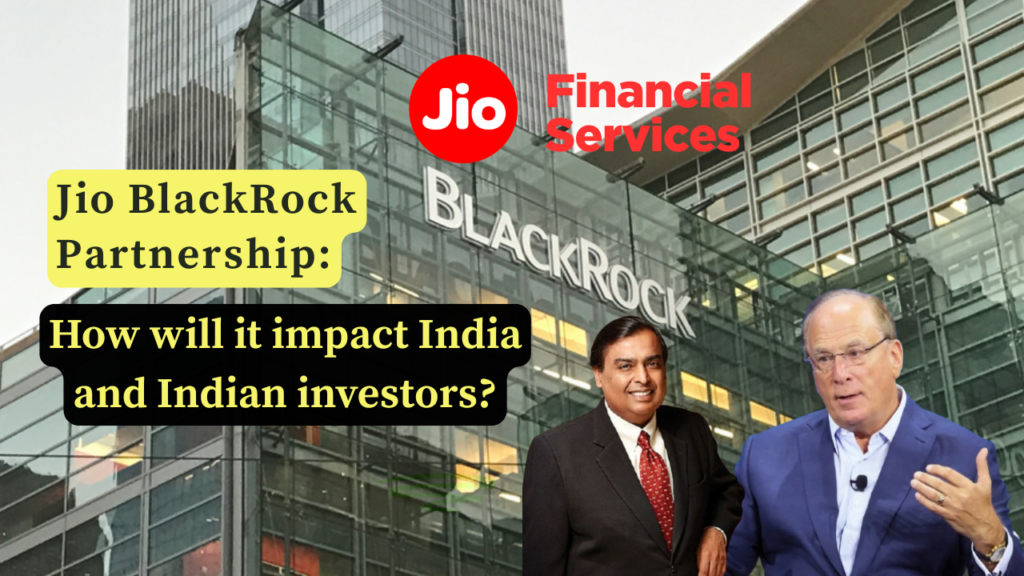In recent years, India has witnessed a digital revolution like no other — a rapid transformation fueled not only by domestic ambition but by strategic international capital. At the heart of this story lies Jio, the telecom and digital services juggernaut under Reliance Industries, and BlackRock, the world’s largest asset manager. What brings these two giants together isn’t just profit, but the pursuit of reshaping the next billion digital users — and, in the process, forging a new kind of global capitalism centered in emerging markets.
The Rise of Jio: More Than a Telecom Disruptor
When Jio entered the Indian telecom space in 2016, it did what few thought possible: it made data cheap, fast, and accessible. By offering free voice calls and affordable data, Jio didn’t just win market share — it redefined expectations. Within a few years, it became the largest telecom operator in India, with a sprawling user base and a growing digital ecosystem that includes broadband (JioFiber), entertainment (JioCinema, JioTV), e-commerce (JioMart), and more.
But Jio’s ambition was never limited to telecom. It sought to become the digital backbone of India, offering platforms that would connect, empower, and monetize the daily lives of millions.
BlackRock’s Bet: Why the World’s Largest Asset Manager Cares About Jio
In 2020, a wave of investments flooded into Jio Platforms. Among them was BlackRock — a $10 trillion giant known for its meticulous, long-term investment approach. BlackRock’s stake wasn’t just a bet on a profitable company; it was a strategic move into the future of digital economies.
Emerging markets like India represent the next frontier for growth, with a population eager to leapfrog traditional infrastructure into fully digital lifestyles. For BlackRock, Jio offered a rare opportunity: a company that not only dominates a key sector but has the potential to digitize and monetize every aspect of daily life for hundreds of millions.
The Digital Middle Class: Jio’s Most Powerful Creation
What sets this partnership apart isn’t the capital exchanged — it’s the class being created. Thanks to Jio’s affordability and reach, a new digital middle class is emerging in India. These are individuals and families who:
- Own smartphones powered by Jio SIMs.
- Stream shows and movies on JioCinema.
- Shop online via JioMart.
- Learn and work from home using JioFiber.
This transformation isn’t just economic; it’s cultural. Jio’s platforms are creating digital citizens, ready for a future defined by online services, digital payments, and instant information.
And BlackRock? It’s along for the ride, shaping this new economy while collecting returns on the infrastructure powering it.
Geo-Strategic Capitalism: Investment Meets Influence
What we’re seeing is more than globalization — it’s geo-strategic capitalism. Investments in platforms like Jio allow firms like BlackRock to influence the digital future of nations, even if indirectly. This isn’t colonialism — it’s capital at the speed of data.
By owning pieces of the platforms people depend on daily, global investors gain silent leverage over emerging economies. It’s subtle, yet powerful.
The Risks: Data, Dependency, and Digital Sovereignty
Of course, no transformation is without its shadows. As Jio gathers vast amounts of data on Indian users and BlackRock holds equity, questions emerge:
- Who owns the data?
- What are the checks on foreign influence in digital ecosystems?
- How do we balance accessibility with autonomy?
India’s government is increasingly aware of these issues, pushing for data localization and digital sovereignty. The challenge will be maintaining openness to investment while protecting citizen rights and national interests.
Final Thoughts: The New Blueprint for Growth
Jio and BlackRock represent a new model for how emerging markets grow: through tech-driven, capital-backed expansion, focused on digitizing every layer of society. In this partnership lies a powerful lesson: the future will not be built solely in Silicon Valley — it will be co-authored in Mumbai, Delhi, and beyond.
The creation of a digitally native middle class is perhaps Jio’s greatest achievement — and BlackRock’s most strategic investment. Together, they’re shaping not just a company or a market, but the very architecture of a digital India.
FAQs
1. Why did BlackRock invest in Jio?
BlackRock saw Jio as a high-growth platform with unmatched reach in a fast-growing digital market. It aligned with BlackRock’s strategy to invest in long-term infrastructure and digital transformation in emerging economies.
2. What is Jio Platforms Ltd.?
Jio Platforms is the digital arm of Reliance Industries, housing assets across telecom (Jio), broadband (JioFiber), media (JioCinema), e-commerce (JioMart), and cloud services. It’s positioned as India’s all-in-one digital ecosystem.
3. How does Jio enable the creation of a digital middle class?
By offering low-cost internet, affordable smartphones, and integrated digital services, Jio has brought millions of Indians online — creating access to education, commerce, entertainment, and employment for first-time digital users.
4. How much did BlackRock invest in Jio?
BlackRock, along with other global investors, contributed to a $20+ billion fundraising round in Jio Platforms in 2020. While its individual investment was smaller than firms like Facebook or Google, it was part of a significant institutional influx.
5. What’s the impact of foreign investment in Jio?
Foreign investment provides capital for expansion, innovation, and technology partnerships. However, it also raises concerns about digital sovereignty, data control, and long-term dependency on external capital.
6. Is Jio only a telecom company?
No. While Jio began as a telecom operator, it has since evolved into a full-stack digital services company — covering entertainment, e-commerce, cloud computing, education, and health tech.
7. What is BlackRock’s broader strategy in India?
BlackRock is increasing its footprint in India by investing in financial services, infrastructure, and technology. India’s demographic dividend and tech-savvy population make it a strategic growth market for the firm.
8. What are the privacy concerns around Jio’s growth?
With access to massive amounts of user data, concerns arise about how data is collected, stored, and used — especially when international investors are involved. India’s evolving data protection laws aim to address this.
9. How does this partnership affect Indian consumers?
Consumers benefit from cheaper services, better connectivity, and new digital tools. However, there’s a need for transparency and regulation to ensure consumer rights are protected in the long term.
10. Is this investment model being replicated elsewhere?
Yes. Other emerging markets (like Africa and Southeast Asia) are seeing similar patterns: local digital disruptors backed by global capital, aiming to create scalable infrastructure for the next generation of internet users.

